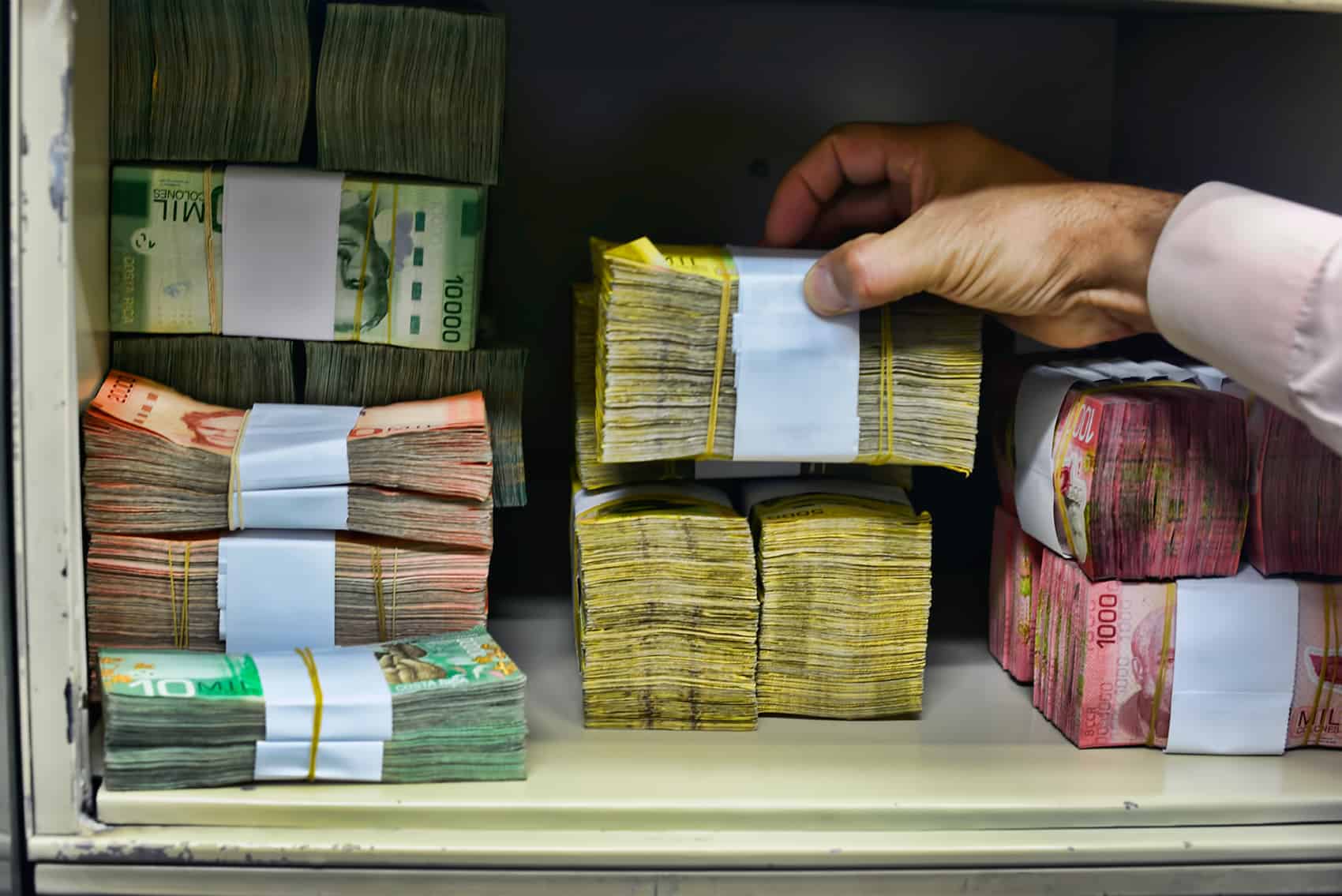Costa Rica’s geographic position and economic openness make it a target for money laundering, primarily driven by drug trafficking, according to the 2025 International Narcotics Control Strategy Report (INCSR) from the U.S. Department of State. Though not a major financial hub, organized crime exploits various sectors to clean illicit funds, posing ongoing challenges for our country’s small security forces and regulatory systems.
Drug Money Fuels Costa Rica’s Illicit Finance Networks
Drug trafficking remains the largest source of laundered money in Costa Rica, with an estimated $4.2 billion processed annually, according to a report by Costa Rica’s intelligence agency (DIS). Criminals exploit multiple sectors to integrate illicit proceeds into the economy. Real estate is a prime target, where traffickers purchase properties or invest in development projects to mask ownership or inflate values.
For example, luxury condos and commercial developments in San José have been linked to suspicious transactions, often involving shell companies to obscure funds’ origins. Construction follows closely, with criminal groups funding projects to legitimize cash, such as building hotels or residential complexes.
Vehicle sales, particularly of high-end cars, serve as another channel, with cash-heavy transactions raising red flags. Foreign exchange businesses and money transfer services facilitate quick movement of illicit funds, often through small, layered transactions to avoid detection.
Hotels, especially in tourist-heavy areas like Guanacaste, are vulnerable due to large cash flows from visitors, allowing criminals to blend dirty money with legitimate revenue. Legalized gambling and sports betting, a growing industry, offer high-volume cash transactions with limited oversight, making them ideal for laundering. Online gaming operations launder millions annually through Costa Rica and offshore centers, exploiting regulatory gaps.
Illegal gold mining in Crucitas, Zona Norte, is a significant concern, generating illicit revenue alongside environmental damage. The INCSR highlights this region for natural resource crimes, including wildlife trafficking, timber smuggling, and illegal fishing, which funnel profits into money laundering schemes. These activities exploit Costa Rica’s vast maritime territory, where oversight is limited. Bulk cash smuggling through airports and borders remains prevalent, with $1.2 million in undeclared currency seized at Juan Santamaría International Airport from January to October 2024, thanks to U.S. Customs and Border Protection (CBP) collaboration.
Virtual currencies are a rising threat. Unregulated in Costa Rica, cryptocurrencies like Bitcoin enable anonymous transactions, with their popularity growing among “techspert” criminals. Recently, the Costa Rican Drug Institute (ICD) warned that digital currencies could legitimize drug profits, a concern echoed in the 2025 INCSR. The planned 2018 opening of a Bitcoin ATM in Costa Rica raised alarms about increased laundering risks, and similar vulnerabilities persist today.
Legal and Enforcement Hurdles
Costa Rica has strengthened its anti-money laundering (AML) framework, with the Attorney General’s Money Laundering and Asset Forfeiture Bureau partnering with U.S. agencies. However, the lack of a non-conviction-based asset forfeiture law forces reliance on weaker legal tools to seize assets without a clear legitimate source, slowing efforts to disrupt criminal networks. Complex money laundering prosecutions are rare—only 21 convictions were recorded in 2014, with few since—and regulators have imposed minimal sanctions for AML violations.
Costa Rica’s role as a narcotics transit hub, bridging North and South America, amplifies risks. Rising local drug warehousing fuels domestic consumption and a 66% homicide increase over the past decade, linked to figures like Gilbert Hernan “Macho Coca” Bell, designated by the U.S. Treasury in 2023. The country’s stable economy—4% GDP growth projected for 2024—and $75 billion financial sector attract legitimate and criminal investment. State-owned banks hold 46% of assets, but private banks, casinos, and online gaming remain vulnerable.
A 2024 FATF evaluation rated Costa Rica compliant or largely compliant with 37 of 40 AML recommendations, showing progress. Yet, resource constraints and legal gaps hinder action against sophisticated crime networks. Stronger cryptocurrency regulations and a robust asset forfeiture law are critical. U.S. partnerships, like joint airport operations, drive seizures, but Costa Rica’s small security forces struggle to counter evolving transnational crime. The INCSR urges closing these gaps to protect the economy from illicit funds.






